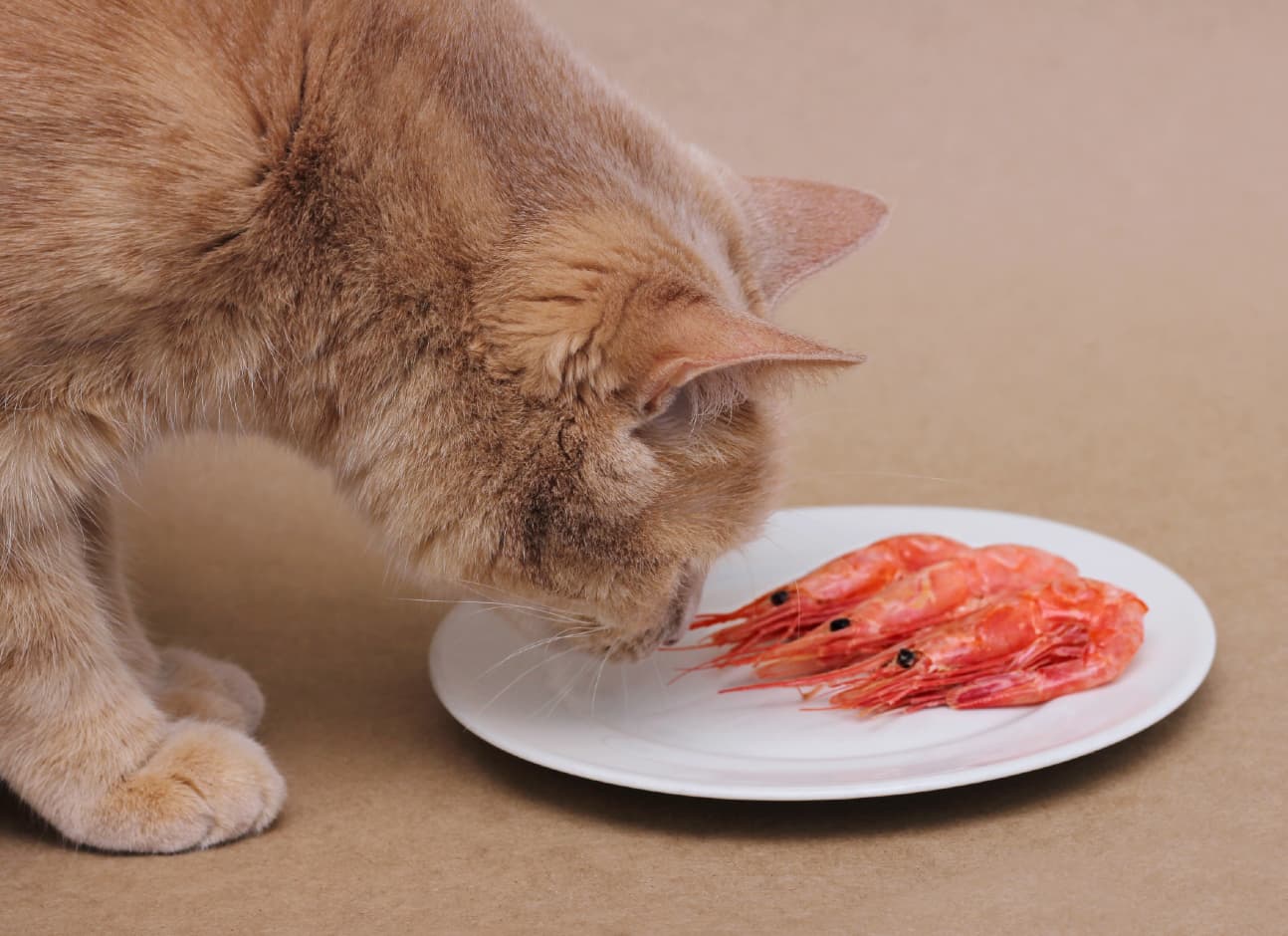Cats are obligate carnivores, meaning their diet is primarily based on meat. Their digestive system is designed to digest and absorb nutrients from animal protein. However, cats are also known for their curious nature and tendency to explore and taste everything in their surroundings. One question that pet owners often ask is, “Can cats eat shrimp tails?”
In this article, we’ll explore whether it’s safe for cats to eat shrimp tails, their nutritional value, and the potential risks associated with feeding shrimp tails to your feline companion.
Can Cats Eat Shrimp Tails?
Shrimp is a type of seafood that is popular among humans and is a great source of protein. Some pet owners believe that since cats are carnivores, they can safely eat shrimp and tails. However, while it is true that cats require a diet high in protein, feeding them seafood can have some risks
Nutritional Value of Shrimp Tails
Shrimp tails are a source of protein and chitin, a fibre-like substance that makes up the shells of crustaceans. Chitin has been found to have potential health benefits for humans, such as reducing cholesterol levels and improving gut health. However, cats don’t have the enzymes to break down chitin efficiently, so they may be unable to digest it fully.
Shrimp tails also contain glucosamine and chondroitin, which benefit joint health. These nutrients are commonly found in supplements and pet foods for joint support.
Potential Risks of Feeding Shrimp Tails to Cats
While shrimp tails may offer some nutritional benefits for cats, there are also potential risks associated with feeding them to your feline companion.
Firstly, shrimp tails can be a choking hazard, especially for cats who tend to swallow food without chewing. The sharp edges of the shrimp tail can cause cuts or blockages in the digestive tract, which can be fatal if left untreated.
Secondly, shrimp tails may contain harmful bacteria and parasites, such as Vibrio and Listeria, that can cause cat food poisoning. Cooking the shrimp tails thoroughly can reduce the risk of contamination, but feeding them to cats is still not recommended.
Signs of Shrimp Tail Ingestion in Cats
If your cat has ingested shrimp tails, you may notice signs of digestive distress, such as vomiting, diarrhea, or loss of appetite. In severe cases, your cat may exhibit symptoms of a blockage, such as abdominal pain, lethargy, and difficulty passing stool.
If you suspect your cat has ingested shrimp tails or any other foreign object, it’s essential to seek veterinary care immediately. For example, to our vet clinic Dubai.
Safe Alternatives for Treating Your Cat
Many options exist if you’re looking for safe and healthy treats for your feline companion. Some good choices include:
- Lean meat, such as chicken or turkey, cooked without seasoning or bones
- Cooked fish, such as salmon or tuna, without bones
- Cat-friendly vegetables, such as pumpkin or sweet potato
- Commercial cat treats that are specifically formulated for feline health
Conclusion
In conclusion, while shrimp tails may offer some nutritional benefits for cats, the potential risks of feeding them outweigh the benefits. Shrimp tails can be a choking hazard, contain harmful bacteria and parasites, and cause digestive distress in cats. It’s best to avoid feeding shrimp tails to your feline companion and opt for safe and healthy alternatives instead.
